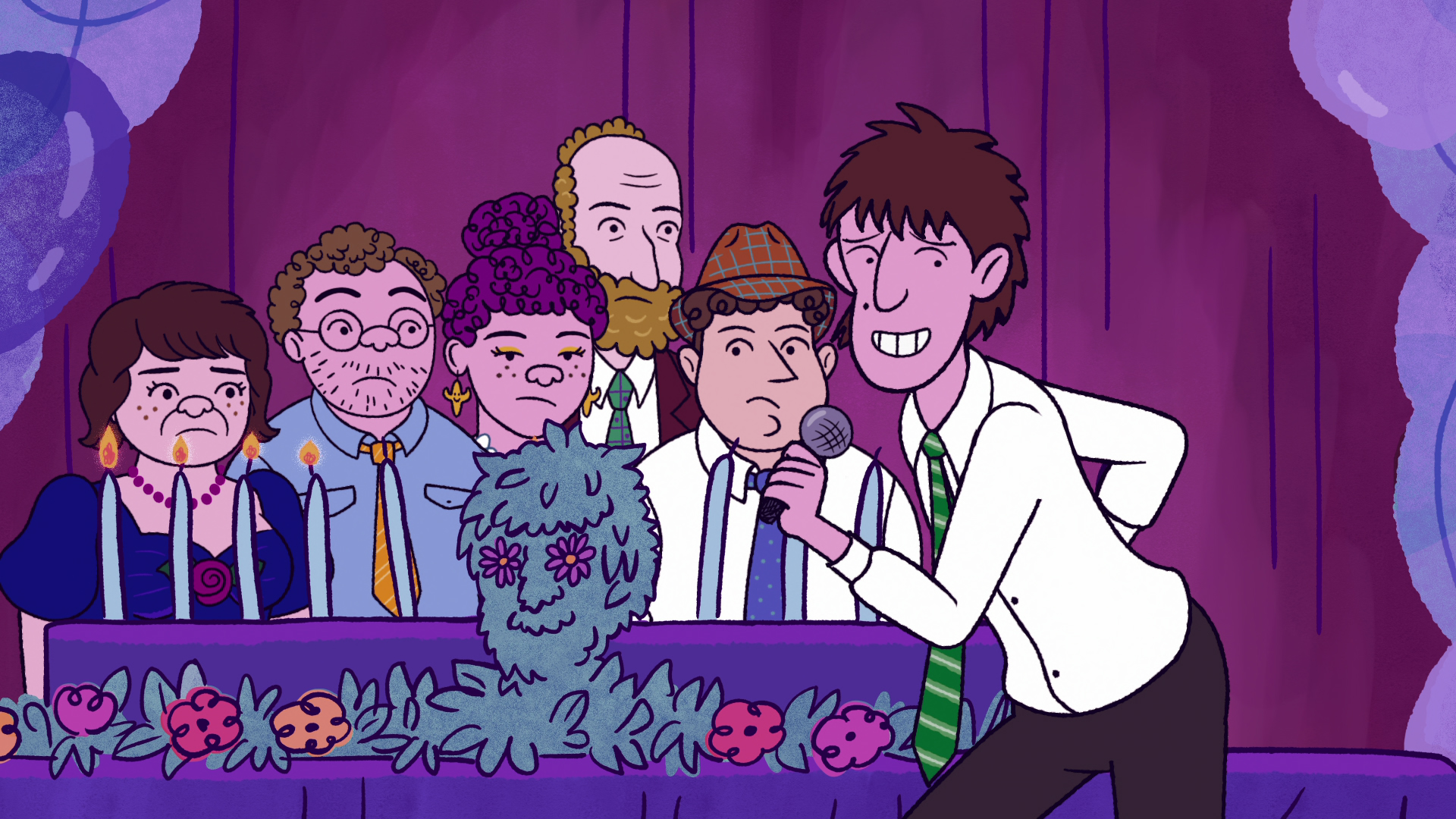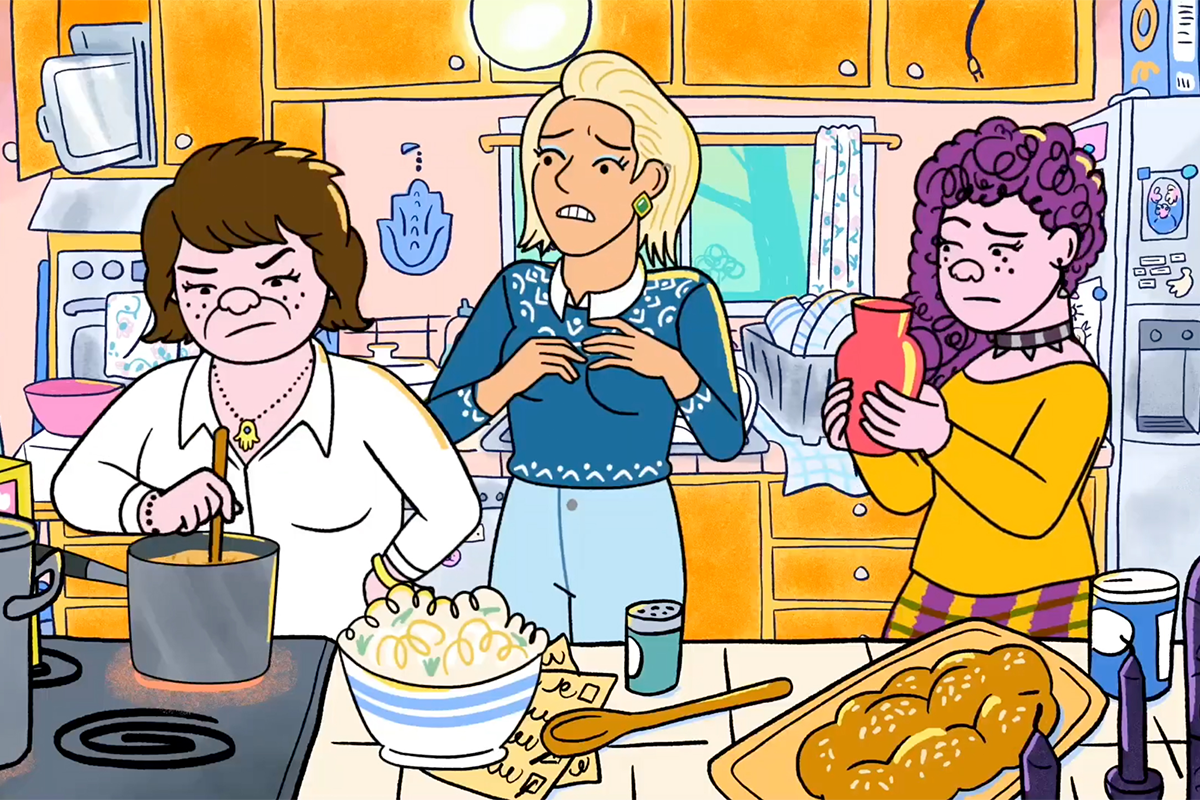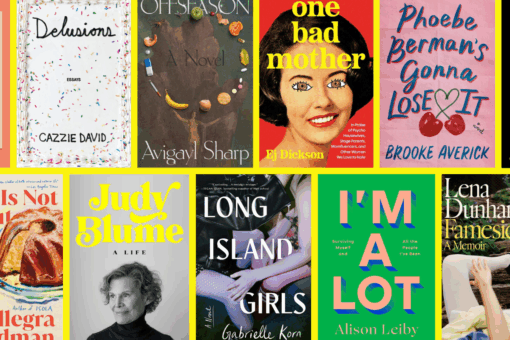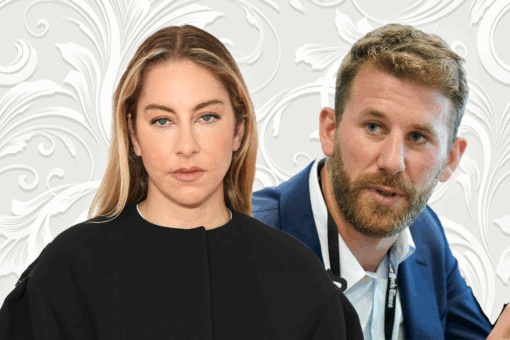Jewish writer Raphael Bob-Waksberg’s beloved animated dramedy “BoJack Horseman,” which ran from 2014-2020 on Netflix, was infused with Jewish sensibilities despite not having any officially Jewish characters.
His overlooked 2019-2022 Prime Video series “Undone,” co-created by Kate Purdy, centered on a mentally ill Jewish-Mexican-American woman facing histories of generational trauma through time travel.
Family histories, presented in a non-linear time-jumping narrative, are once again the focus of Bob-Waksberg’s new Netflix show, “Long Story Short.” Never becoming quite as dark as “BoJack” or “Undone,” it’s still as funny, inventive and moving as anything Bob-Waksberg has written before – and is by far his most Jewish creation yet.
“Long Story Short” centers around a Jewish family known as the Schwoopers (that’s a portmanteau of Schwartz and Cooper), following siblings Avi (Ben Feldman), Shira (Abbi Jacobson) and Yoshi (Max Greenfield) back and forth in time from their childhoods in the ‘90s up to 2022, where Avi and Shira are each raising their own kids amidst the COVID-19 pandemic.
Bob-Waksberg told Deadline that setting the show over such a long period of time is an attempt at making up for how few streaming shows get long runs: “You don’t get to 200 episodes of a show very often anymore so I thought how I could short circuit that a little bit.” The effect is reminiscent of the movie “Boyhood,” only it doesn’t take 12 years to make cartoons grow up.
The siblings’ complicated relationships with their overbearing Jewish mother, Naomi Schwartz (Lisa Edelstein), loom large over all phases of their lives. As adults, they each break in different ways from Naomi’s “one way to be Jewish” (“a progressive egalitarian Conservative Judaism with an emphasis on ritual and community over faith and blind practice — that’s literally the only way it makes sense!”).
Avi is an atheist in an interfaith marriage (and later divorce) raising his daughter Hannah (Michaela Dietz) without religion; he defines his Judaism more as not celebrating Christmas (and defines visiting Jen’s parents at Christmas as not himself celebrating Christmas). Shira keeps more of her family’s traditions, but largely because her convert wife Kendra (Nicole Byer) is into them (Naomi has zero complaints about Kendra). The episode about Kendra’s conversion, which starts at a fancy Chuck E. Cheese competitor and ends at a Yom Kippur service, is one of the season’s high points for that perfect “BoJack”-style mix of zany and devastating. How Yoshi’s Jewish identity evolves is one of only two plot details in the show Netflix has designated a “spoiler;” suffice to say, it’s unexpected coming from a character who’s largely the wacky ADHD comic relief a la “BoJack”’s Todd Chavez, but makes a strange amount of sense building from the existential anxieties he expresses in the first episode at his bar mitzvah.

One of the big messages of this show is that there is no “one way to be Jewish.” Talking about endings in a non-linear show designed to feel endless is almost beside the point, but it’s telling that the season concludes with Hannah talking to her dad about whether she can have a bat mitzvah. Halakhically, some might not consider her Jewish, but Avi reasons that Hitler would consider her Jewish, so it should be fine for her to have a bat mitzvah by “Hitler rules.” This is a conversation that had been shown in pieces earlier in the season, but seeing it after finding out the reason she wants a bat mitzvah (it’s tied to the one other officially designated “spoiler”) hits much harder.
“Long Story Short”’s sense of humor is heightened and cartoony in places (not to the extremes of “BoJack”’s anthropomorphic world, but about on par with early “Simpsons”), but its Jewish family dynamic feels very real: the memories, the in-jokes, the traumas, all the love and hate and joy and frustration.
Netflix might push viewers to skip opening and ending credits, but don’t do that here — the opening is a family album that changes each episode, while the ending always has different visual and musical gags leading up to the most important credit any show can contain in the age of AI: “This program was made by humans.” Until robots can cry over a knish recipe or laugh reminiscing about which uncle coined which Yiddish catchphrase, us Jewish human viewers should celebrate very Jewish, very human art like this.



